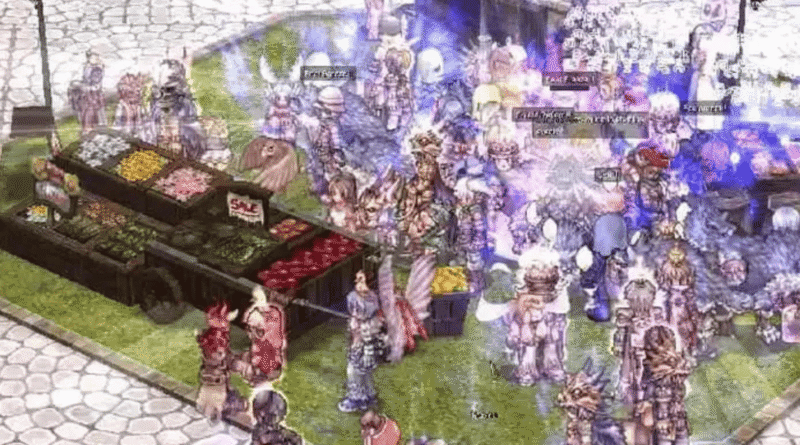The Legacy of MMORPGs: A Scholarly Analysis of Influential Titles and Their Creators
The Pioneers of MMORPGs: Visionary Developers and Their Creations
The evolution of massively multiplayer online role-playing games (MMORPGs) can largely be attributed to visionary developers who dared to push the boundaries of technology and storytelling. Among these pioneers, Richard Garriott stands out as a central figure. He created “Ultima Online” in 1997, a title that redefined the gaming landscape. Garriott’s background in computer science and his fascination with fantasy literature significantly influenced his approach. He envisioned a world where players could engage in a persistent universe, combining rich narrative and social interaction, which became a hallmark of the MMORPG genre.
Another significant contributor is Blizzard Entertainment, renowned for the monumental success of “World of Warcraft,” released in 2004. This game revolutionized the MMO genre by introducing a user-friendly interface, engaging quests, and a community-focused environment. The development team at Blizzard, drawing inspiration from previous successes like “Warcraft” and “StarCraft,” meticulously designed “World of Warcraft” to be accessible yet deep, catering to both casual and hardcore players. The balance between community engagement and competitive gameplay established it as a cultural phenomenon.
Additionally, the British developer Jagex introduced “RuneScape” in 2001, which became notable for its accessibility and player-driven economy. The game’s evolution reflected the creators’ commitment to community feedback and adaptation, establishing a pioneering model in the MMORPG landscape. Furthermore, “Final Fantasy XIV,” initially launched by Square Enix in 2010, had a challenging start but was restructured to become one of the most acclaimed MMORPGs. The turnaround, driven by a team dedicated to improving player experience, showcases the crucial role of developer resilience and creativity.
In essence, the origins of MMORPGs rest on the shoulders of these influential developers. Their personal backgrounds and dedication to the craft not only shaped individual titles but also carved a path for future creators in the realm of interactive digital experiences.
Cultural Icons: Characters and Narratives That Transcend Gaming
The world of MMORPGs (Massively Multiplayer Online Role-Playing Games) has given rise to a plethora of iconic characters and narratives that have become paramount symbols in modern culture. Characters such as Arthas Menethil from “World of Warcraft,” Cloud Strife from “Final Fantasy XIV,” and the Chosen Undead from “Dark Souls” serve not only as avatars for players but also embody deeper themes and reflections of the human experience. These figures illustrate the intricate storytelling techniques and world-building exercises inherent in MMORPGs, captivating players and sparking their imaginations.
The narratives within such games often explore complex themes, including morality, sacrifice, and redemption. For instance, Arthas’s transformation from a noble prince to a corrupted ruler encapsulates a rich storyline reflecting the struggle between good and evil. This character arc resonates profoundly with players, making Arthas a cultural icon beyond the game itself. The emotional investment players have in these characters illuminates the power of storytelling in digital environments, demonstrating how well-crafted narratives can transcend the boundaries of traditional gameplay.
Moreover, the world-building in MMORPGs constructs vast universes that allow players to immerse themselves in diverse cultures and histories. This level of engagement fosters a sense of community, as players band together to share experiences and discuss interpretations of the extensive lore. Icons like Cloud Strife not only represent personal journeys but also symbolize broader cultural contexts and the shifting dynamics of heroism in contemporary narratives. As players engage with these figures, they become part of a larger dialogue concerning identity, culture, and art.
Through their multifaceted narratives and deeply developed characters, MMORPGs have carved out a unique space in the cultural landscape, making them not only a source of entertainment but also an important medium for storytelling and personal reflection. Therefore, exploring these elements allows us to appreciate the indelible mark that MMORPGs and their creators have left on both gaming and pop culture.
Building Communities: The Social Dynamics of MMORPGs
Massively Multiplayer Online Role-Playing Games (MMORPGs) serve as remarkable platforms for social interaction, shaping vibrant online communities that transcend geographic boundaries. At their core, these games facilitate connections among players, fostering a sense of belonging and identity that resonates in an increasingly digital landscape. The social dynamics within MMORPGs are multifaceted, reflecting a spectrum of interactions from casual acquaintances to deep friendships.
One of the primary social mechanics at play in MMORPGs is the formation of guilds or clans. These groupings not only provide a structured way for players to collaborate on quests and challenges but also serve as a refuge where individuals can share their experiences and forge lasting relationships. Guilds often establish their own cultures and hierarchies, creating an environment in which players can engage in communal activities, from socializing and strategizing to celebrating achievements. The emotional impacts of these groups are significant, as they encourage collaboration while also giving rise to healthy competition, allowing players to navigate both empathy and rivalry.
The communal experiences within MMORPGs often extend beyond mere gameplay. Events such as raids, festivals, and in-game celebrations cultivate shared narratives that enhance the emotional investment players have in their characters and the game world. Through these shared experiences, players build not just camaraderie but also a collective identity tied to the game itself. Many players find comfort in knowing they are part of a larger story, one that offers support during challenges and a space to celebrate victories, thereby reinforcing community bonds.
Ultimately, the social dynamics of MMORPGs highlight the interplay between virtual interactions and real-world relationships, contributing significantly to players’ overall well-being and sense of belonging in an often isolating digital era.
The Evolution of MMORPGs: From Digital Art to Global Phenomena
The evolution of MMORPGs, or Massively Multiplayer Online Role-Playing Games, exemplifies the intersection of digital artistry and global cultural trends. Initially rooted in simple text-based games, MMORPGs have burgeoned into expansive worlds rich with intricate narratives, diverse character customization, and interactive gameplay. This transformation illustrates not only advancements in technology but also shifting expectations among players who now demand immersive experiences that blend storytelling with community engagement.
Technological advancements have been a pivotal force in the progression of MMORPGs. With the development of high-speed internet and powerful gaming hardware, developers have been able to create expansive virtual worlds that can host thousands of players simultaneously. This shift has led to the crafting of complex in-game economies and social systems, fostering a space where players can engage not only with the game itself but also with one another. The incorporation of high-quality graphics and sophisticated game mechanics has elevated MMORPGs from mere pastimes to forms of digital art that are continuously evolving.
Furthermore, the social dynamics within these MMORPG domains offer a glimpse into the complexities of online interactions and community formation. Players come together to form guilds, take part in quests, and partake in in-game events that reflect real-world social structures. This aspect has established MMORPGs as global phenomena that transcend cultural boundaries, allowing individuals from various backgrounds to connect and collaborate. The ongoing discourse on the implications of these virtual interactions raises important questions about identity, belonging, and the evolving nature of community in an increasingly digital-centric world.
Looking ahead, the future of MMORPGs appears promising yet challenging. As technology continues to evolve, so too will the expectations of players, demanding even more innovative experiences. Moreover, balancing gameplay with ethical considerations and inclusivity will be vital for developers aiming to maintain relevance in a shifting landscape. The impact of MMORPGs will likely continue to resonate, shaping not only the gaming industry but also broader cultural dialogues in the modern era. In conclusion, the journey of MMORPGs reflects an ongoing exploration of what digital experiences can offer, both as art forms and as platforms for social interaction. Their legacy is poised to influence future generations of gaming and beyond.

